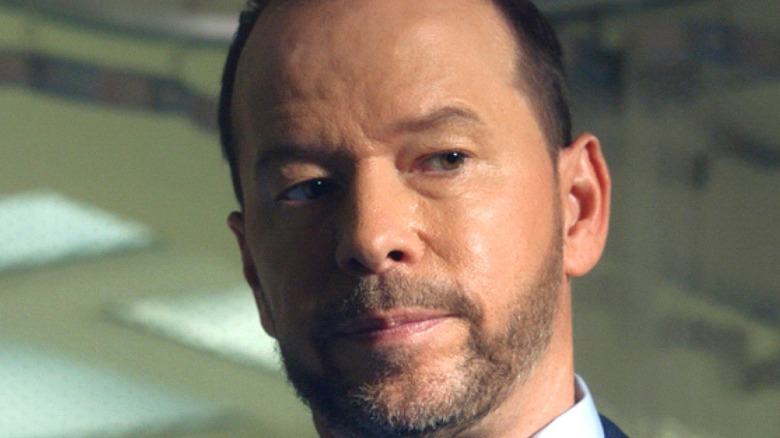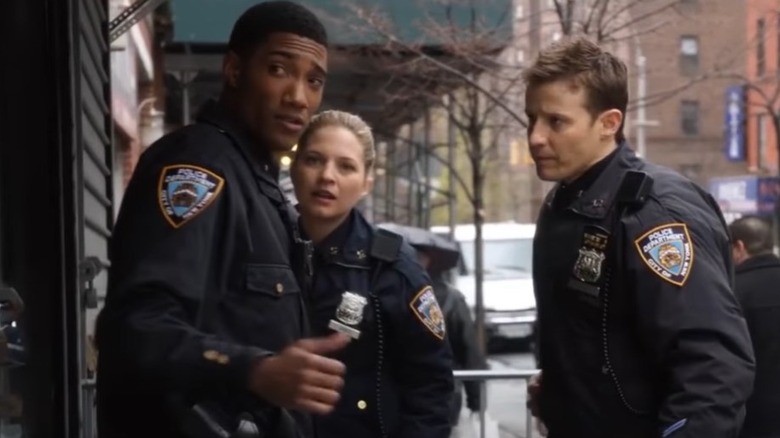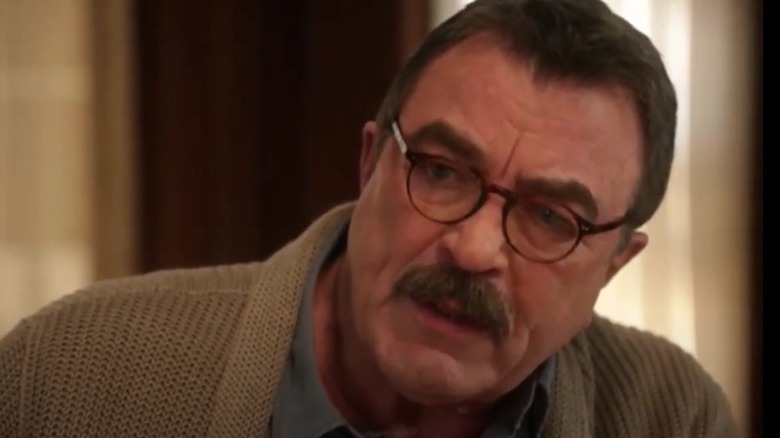The Worst Season Finale Ever On Blue Bloods
One thing CBS' "Blue Bloods" never fails to do is bring the audience to the edge of their seats in the midst of some of the most tense situations faced by law enforcement daily. With each season offering 20 episodes or more to build deep storylines, the season finales don't disappoint and usually find ways to make fans desperate to tune in for the premiere of the following season. But, when you stack them up together, which ones stand out as the best? Which one stands out as the worst? How do you decide?
Obviously, this is a very personal choice, as every "Blue Bloods" fan likely has their own characters and types of storylines they are most attracted to. Maybe you like the drama of discovering a long-dead Reagan has a long-lost son or perhaps it's Danny Reagan (Donnie Wahlberg) facing off against a serial killer that thrills you most. So, the best way to solve the conundrum is to use ratings. After taking a deep dive into ratings of each finale episode on IMDB, the top-rated season finale is in Season 8, with a score of 9.1. It is one of the only two finales that break the 9.0 mark in the series. But which has the lowest rating?
Here is the worst season finale on "Blue Bloods," according to the ratings.
The Season 6 finale is the lowest rated
While two finales are marked 9.0 or higher, the rest are planted firmly in the 8s. However, one season finale just barely keeps with the tradition as it landed an exact 8.0 on IMDB's rating system. The Season 6 finale, "Blowback," rates the lowest in the 11 aired conclusions thus far.
First playing on May 6, 2016, the episode follows the fallout resulting from the shooting of a teenager by NYPD Officer Eric Russell (Carter Redwood). After a robbery, Officer Russell, Eddie Janko (Vanessa Ray), and Jamie Reagan (Will Estes) chase the suspects. While the latter two stop to render aid to one of the suspects, Russell comes face to face with another. He advances with his hands up, refusing to drop a knife. While Russell commands him to drop the knife in English, the suspect refuses in Spanish, resulting in the teenager being shot and killed. The city's residents are not happy in the face of yet another police shooting where the victim is a young, black man.
Revelations about racism in police departments and accusations of cover-ups have sparked serious and nuanced debates about the use of deadly force by police officers. This debate is something that typically causes a lot of conversation among the fans. So, why did this finale fall short of the rest?
Blowback feels like a regular Blue Bloods episode, not a finale
One of the things that makes "Blue Bloods" so successful is the respectful introduction of a variety of perspectives when the show wades into topics that mirror real life. These nuanced debates are the backbone of what makes the series appealing to its audience. While it is often pro-police (with five cops around the dinner table, it is hard not to be), it doesn't shy away from calling for accountability where it is needed and airing opposing points of view.
In "Blowback," Mayor Poole (David Ramsey) speaks out against the shooting. An ADA leaks the police video to try and force an indictment. Even Nicky Reagan (Sami Gayle) makes the argument that these shootings happen too often and there has to be another option. Danny, on the other hand, argues that we judge the police for one split-second decision under the threat of a knife while ignoring the multiple bad decisions leading the teenager to that point. However, in true Frank Reagan (Tom Selleck) style, he stands his middle ground with wise words that echo the theme of the episode: "The problem is somewhere along the line the trust between the cops and the public broke down. And there is plenty of blame to go around."
While "Blowback" is a tense episode, the lack of major movement in any of the character arcs by the conclusion makes it feel closer to a mid-season finale than the culmination of over 20 episodes. As heavy as this subject matter and debate gets, it isn't something new for "Blue Bloods," and just felt like another episode, albeit a very good one.


